
‘He Thinks He and Putin Are Friends’: John Bolton on How Trump Gets Manipulated
Trump’s former national security adviser lets loose on the leaked Signal group chat and Trump’s foreign policy.
Much of Washington is still waiting anxiously to learn who — if anyone — will be fired over the embarrassment now known as Signalgate. But the real battle underneath it all is which conservative faction will define Donald Trump’s foreign policy.
Will it be old school hawks like national security adviser Michael Waltz, who made the mistake of inviting Atlantic editor Jeffrey Goldberg into the chat, or America First types like Vice President JD Vance, who expressed skepticism about the strikes on the Houthis in Yemen.
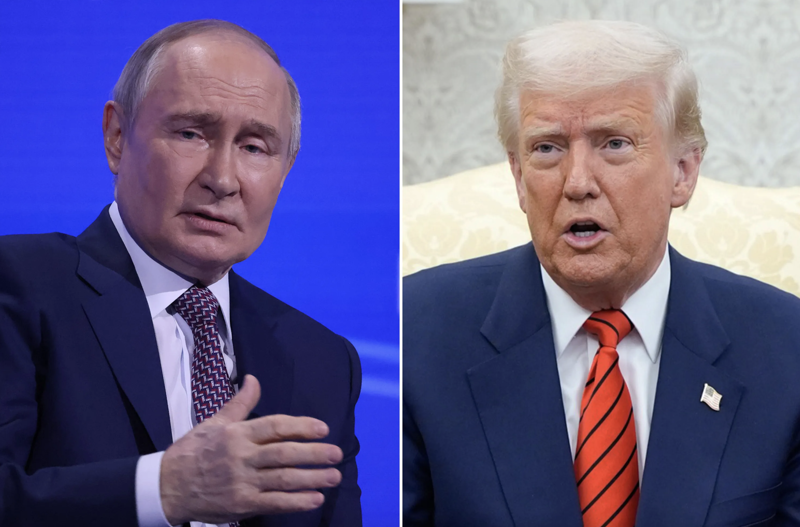
One person who is no stranger to bureaucratic knife-fighting in a Trump administration is John Bolton, who served as national security adviser in Trump’s first term before having an ugly falling out with the president.
In an interview for the Playbook Deep Dive podcast, Bolton discussed Signal disclosures, Trump’s approach to Vladimir Putin and what it’s like to be the subject of the president’s personal vendettas.
A longtime national security hawk, Bolton also had some choice words for Vance, who grumbled on Signal about the American military being needed to open up shipping lanes for Europeans.
The United States has been committed to “freedom of the seas” since the days of Thomas Jefferson, Bolton said. “It’s all out there, just open a book.”.

Within hours of being sworn in, Trump revoked your Secret Service protection despite the Iranians having a price on your head. What is it like to know five years after your falling out with him that he’s still thinking about you on his first day back in the White House?
Well, I’m glad to be on his mind. I guess that’s the only thing I can say.
It obviously had an effect on me and the others whose security protection he canceled, but the bigger effect is on the U.S. itself. When foreign adversaries think that senior American officials — former or present — can be exposed if they fall out with Donald Trump, that tells them something about our vulnerability and it tells his current senior advisers something about their vulnerability too. This is not the way to run a railroad.
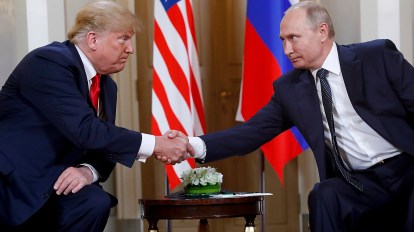
Do you fear for your life now without that security? Have you had to pay for private security?
I’m making arrangements, the specifics of which I won’t get into. But this is not chatter on the internet. This threat — not just to myself, but including Trump and [Mike] Pompeo, [Mark] Esper, [Mark] Milley and others — is a conclusion of years of watching the Iranians and pretty solid information about the nature of the threat. I don’t think the Iranians give up easily. They were after Trump just before the election. Charges were filed against [someone] trying to hire a hitman against Trump himself in the period before the election, which is pretty brazen. So it continues to be current, no doubt about it.
Let’s talk about Signalgate. When you were national security adviser, how often did you put highly sensitive attack plans into a Signal chat with a reporter?
Well, I didn’t use Signal then and, you know, I took a pretty simplistic approach to things.
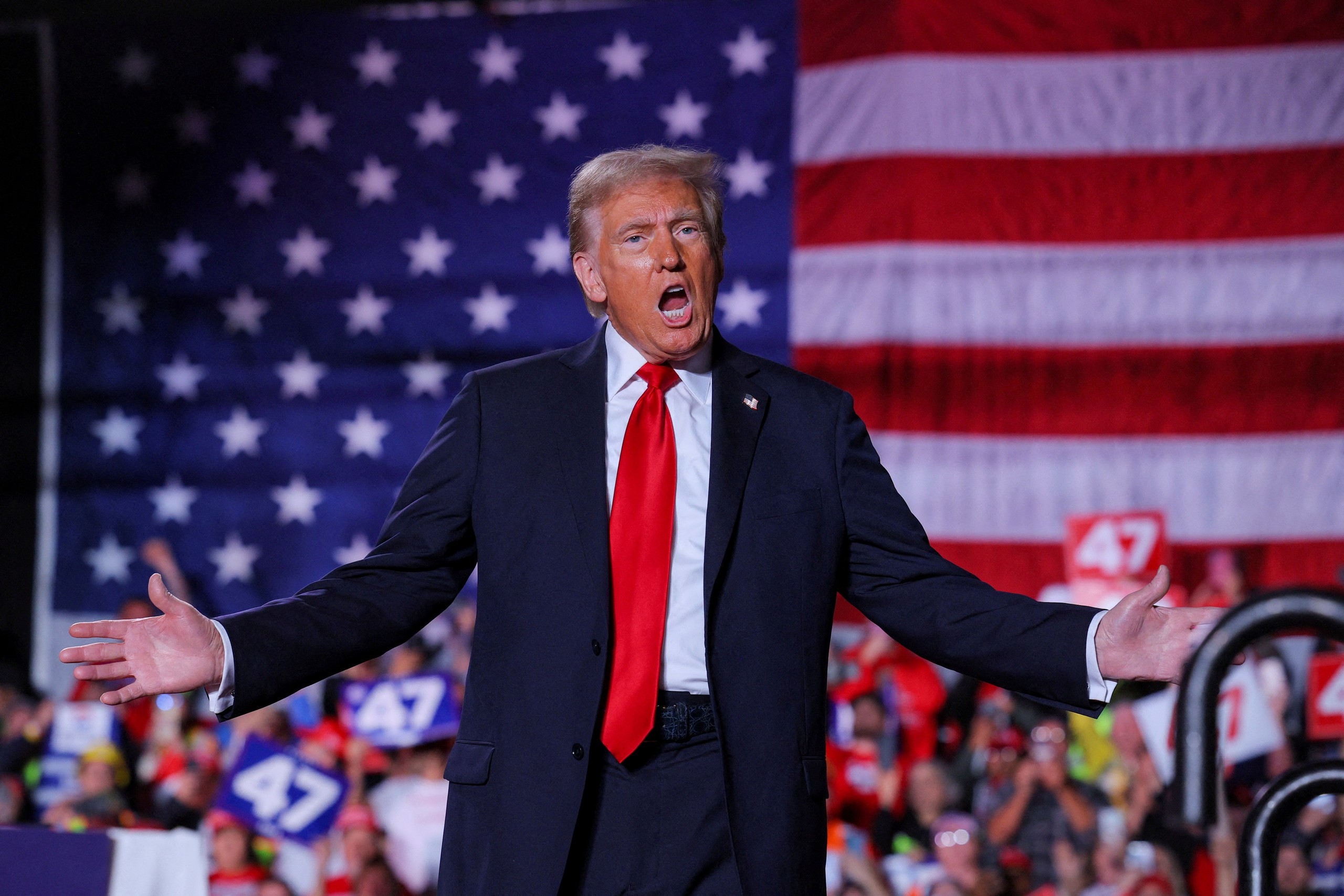
I was being sarcastic, by the way.
I would say that there are two kinds of communication when you’re in one of these senior administration positions. There’s communications over the government-secure telecommunications network on which we have spent billions of dollars and decades of effort to make impenetrable by our adversaries. So there’s that option, and then there is every other option and every other option is not acceptable.
How does a well-oiled national security apparatus conduct business on a weekend when you’re not in the office? The excuse the White House has given is, “Oh, everybody was sort of everywhere. We weren’t in the office.” It sounds like that’s not an excuse.
Look, if you want a group chat, there’s a place for it: It’s called the Situation Room. And if it’s Saturday or Sunday, that’s too damn bad, isn’t it? The United States is about to engage in using military force. You got something else more important in mind?
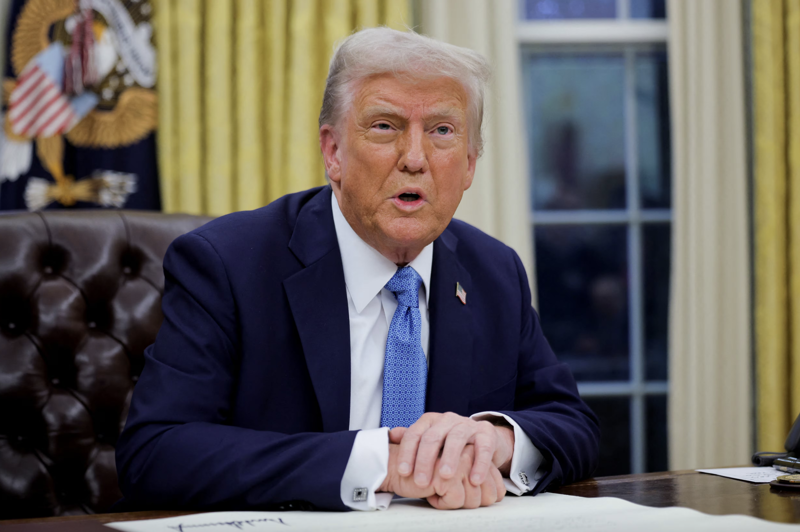
Number two, with a few exceptions on that list — like Steve Witkoff, whose presence is inexplicable to me — but for the secretary of State, secretary of Defense, director of National Intelligence, director of the CIA, national security adviser, they are never more than an arm’s length away from secure telecommunications. I had that kind of capability built into my house. I had a SCIF built in my basement by the National Security Council staff. All these people are receiving protection of one kind or another. They have secure phones in the vehicles they travel in. They have secured communications on their desks. It’s just inconceivable.
Let’s talk about the fallout. You know better than anyone that there’s two things Trump hates the most. Number one, he hates an embarrassing headline — anything that makes him look bad, he doesn’t like it. But he also hates giving longtime critics a win.
So far, we have seen that his concern about his critics getting a win by firing someone has protected Michael Waltz. But at what point do you think that embarrassment to him becomes the thing that’s most important?
It’s the former that’s most important. If he thinks he’s suffering political damage as a result of this, then I think the risk to everybody involved goes up, both holding onto their jobs and also the risk of real investigation. I think as long as Donald Trump doesn’t feel the heat, nobody will be investigated for anything and they won’t lose their jobs, at least in the short term. But the second metric at work is, what has all this done to Trump’s view of the people themselves? How much of this does he take before he says it’s not worth the risk down the road?
Now, that isn’t going to happen this week or next week or the week after. But we had [Pete] Hegseth earlier in an incident with Elon Musk, somebody maybe inviting Musk to the Pentagon for a briefing on the China war plan. Remember that war plan?
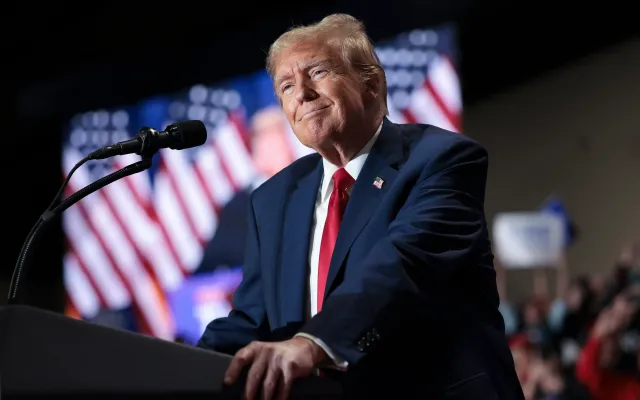
I do.
Trump specifically said later that he didn’t think that anybody should receive a briefing on the China war plan. That’s the correct position. And he said, almost gratuitously, “You know Elon has a lot of business in China. That could be a conflict of interest.”
Well, indeed, it could be a conflict of interest. And that was another signal. He didn’t like that at all. So I think Hegseth already had one strike against him. The Signal chat issue may be two strikes against him. But at some point, I do think people become vulnerable. But no action will be taken until a couple months from now at the earliest, when suddenly they’ll find some very attractive way to spend more time with their family.
It’s interesting that you brought up Pete Hegseth because some people have been surprised that all the focus has been on Michael Waltz. We talk to people in the White House, and the anger is not at Hegseth. I can tell you that for certain from my own conversations, it’s all focused on Waltz. And yet it was Pete Hegseth who put this sensitive information about strikes and timetables into the chat.
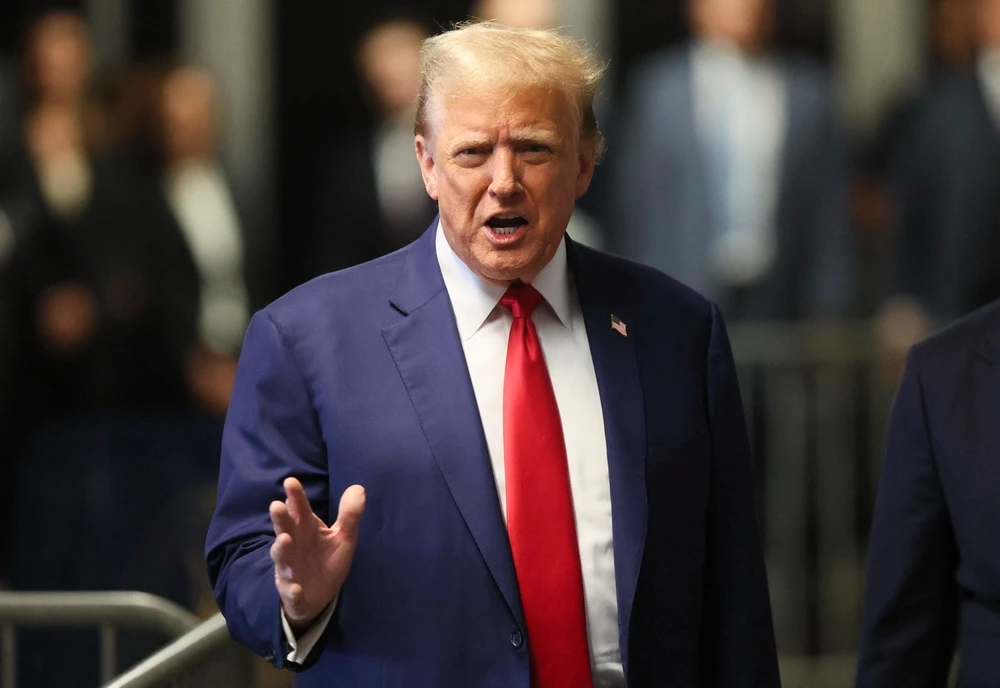
What can we take away from the fact that people close with Donald Trump are not talking about Hegseth? And in fact, I think the president said yesterday, “Pete did nothing wrong. This was all Mike.” What do you make of that?
Well, I think it says Waltz is more vulnerable and I don’t think that’s entirely fair. Everybody on that Signal group chat had a responsibility to protect government secrets and the daddy on that chat, the highest ranking official, was the vice president.
Waltz may have started it, but everybody else allowed it to go on. Hegseth has said in his defense that, “Well, I had a duty to keep these people informed.” No, he didn’t. The secretary of the Treasury, Scott Bessent, doesn’t need to know when the second F-18 strike group is about to take off. The only other person, I think, other than Hegseth himself who should have been kept up to date moment-to-moment was Waltz, because he might have to tell the president or he might have to notify somebody else.
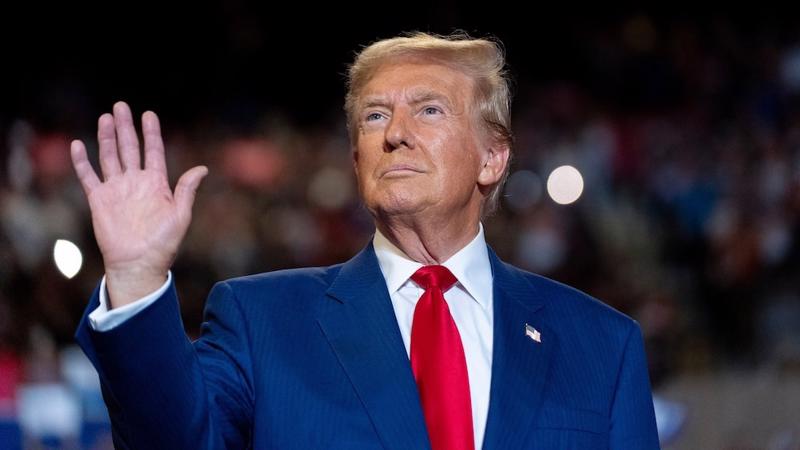
Is it true though that the secretary of Defense can declassify things on a whim? Do Trump officials have any sort of leg to stand on on this idea that if he decides this is not classified, it is therefore not classified? If in terms of a defense against a criminal prosecution, if it’s not classified that may have something to do with it. But remember, the fascination with “Did they violate the law?” as opposed to “Did they just do something that no reasonable person should have done?” distracts from the real issue, which is potentially putting American service members in jeopardy. I would say: Remember what that iconic French statesman the Marquis de Talleyrand was once said to have said: “It’s worse than a crime. It’s a mistake.” And that’s what this whole thing was, a mistake. To go back to this notion of who’s the more vulnerable fall guy here, Hegseth or Waltz, how much of this is part of an ongoing civil war happening in the Republican Party right now? You have some who are more Reaganite, more hawkish types like Michael Waltz, like Marco Rubio.
And then you have a restrainer branch. The MAGA, America First faction of the GOP. Do you think that faction is putting the blame on Waltz to try to push him out? I’ve read some of your reporting on it. I really think it’s pretty much one-sided, more by the pro-Russia faction within the MAGA movement against what you might call the Reaganite, the more traditional foreign policy wing. And they’re just obsessed with finding remnants of prior Republican administrations and purging them. I think the more Reaganite people are just trying to do their job, but it shows fundamentally that if that is a description, how non-serious these isolationists, neo-isolationists are and how they don’t understand really how much is at stake. Do you have confidence that Waltz is going to be somebody who pushes back on this America First, isolationist wing of the party? And if so, do you want him not to resign? Well, if I said I thought he should stay, that might hurt him. So you know the old saying in politics, “I’ll be for you or against you, whichever does you more good.” I just think at this point, the only issue for Donald Trump is whether he’s being hurt. And I don’t see that he’s suffering harm at the moment. It could be that polls will show that there is harm. But that doesn’t mean that in his mind, many of the actors in this particular drama have really used up a lot of their political capital and are on very thin ice with him down the road. If we didn’t already know it from Vice President JD Vance’s speech at the Munich Security Conference a couple weeks ago, we certainly learned it from the Signal chain that he has a lot of disdain for Europe. He made it clear he thought that intervening with the Houthis was bailing Europe out.

I don’t think Trump thinks in conceptual terms, so there are parts of Europe he likes and parts of Europe he doesn’t like. Keir Starmer made a very astute move in his first visit by bringing an invitation from King Charles for another state visit. And as I said, as you said, I’ve never seen Trump happier than in his white tie at the dinner with Queen Elizabeth in Buckingham Palace. And I have to say it was quite an occasion. But another white tie dinner with King Charles this time, fantastic. Other monarchies in Europe should do the same.
He was thrilled to be invited to the reopening of Notre Dame Cathedral by President Macron, even before Trump was inaugurated. He was a builder, so he knows about cathedrals and things like that. There are ways to get to Trump that the Europeans need to think about. I don’t think it occurs to Vance that that might be a problem for him.
We’ve got to talk about Ukraine and Russia here. Trump’s art of the deal clearly is to sort of entice Putin to the table with a carrot and try to force Zelenskyy to the table with a bat. Is there a charitable explanation for why Trump is showing so much deference to Russia and treating Ukraine so harshly?
Trump views international relations through the prism of his personal relations with foreign leaders. So he thinks that if he has good relations with Putin, then the U.S. has good relations with Russia. That’s not true, but that’s what he thinks. He thinks he and Putin are friends.
By contrast, he has not had a good relationship with Zelenskyy since the famous “perfect phone call” of 2019 that led to his first impeachment. So therefore, he thinks that if he gives his friends some advantages like all the concessions he’s already made on Ukraine, that will help bring peace. He wants this war behind him. He thinks it’s Biden’s war. He said during the campaign, it never would have happened had he been president.
Putin doesn’t think they’re friends. He thinks Trump is an easy mark. And he thinks he’s manipulable. And he has been manipulating him as when Putin said several weeks ago, “You know, Trump was right that if he had been president, there wouldn’t have been a war in Ukraine”. Well, maybe so, maybe not. But Trump loved to hear that. Then they released the hostage, Mark Foley. Then [Aleksandr] Lukashenko and Belarus released another American hostage. This is the manipulation at work.

Now, I think Putin’s got to be very careful that he doesn’t overstep it here and risk losing some of the concessions that Trump has made. Trump made a statement [Wednesday] that indicated maybe he thought Putin was slow rolling things. So it’s not inevitable that Putin’s going to get everything that he wants. He could make a mistake, but the odds are in his favor now. And I think he does want to slow roll things because he believes momentum on the battlefield is flowing in his direction.
What do you make of Trump’s posture toward China? He’s talked for a long time about being tough on China. But then he delayed the TikTok law enforcing that ban without divestment.
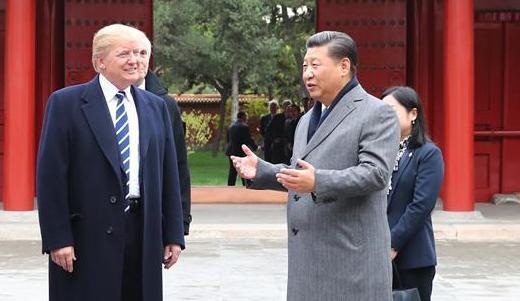
There were a number of Republicans on the Hill who were super pissed that the administration took out this provision in a spending bill in December that would have culled American investment in China. What do you make of his position right now — or can you even really define it?
Well, I think he blames China for his loss of the 2020 election because of Covid.
But beyond that, going back to his first term, he wants at some point to negotiate the biggest trade deal in human history with China. So if you look at a very tumultuous opening two months, while tariff measures have been traded back and forth by China and the United States, it’s been relatively quiet compared to a lot of other fronts. And I think Xi Jinping is waiting to see a little bit better what Trump is going to do and I think Trump, hoping for this opportunity to do the biggest trade deal in history, has not been willing to turn the heat on yet.

I think it’s a huge mistake. I don’t care whether they sell TikTok or not, it ought to be banned in this country. It’s an arm of Chinese intelligence. Doesn’t matter what’s on the platform. It’s a vacuum cleaner of American habits and actions that entirely benefit China.
Do you think that China has the upper hand on TikTok because the president is not going to want to go through with getting rid of it?
Yeah. It’s unbelievable. He was against TikTok before it helped him in the election.
This is the epitome of Donald Trump. If it’s good for me, I’m for it. If it’s not good for me, I am against it.
Obviously you’ve been very critical of President Trump and his current foreign policy, but I’m wondering if there is anything you think he’s doing right on the global stage right now?
I think the closing of the southern border seems to be going very well. He’s not doing what he wants to do in terms of deportation. He may never be able to, but it turns out he was able to close the border in the first term and he’s doing it again now because the principle of deterrence works against illegal immigrants too. If they think they’re going to walk across Central America and Mexico and get to the Rio Grande and not get in, they’re sensible enough not to leave their homes to begin with.
I think most Americans favor more immigration, but that we should pick who comes in. So he’s got himself a victory on that score. I don’t think there’s any question about it.
Trump’s ‘Liberation Day’ tariffs are about to be announced. Here’s what to expect
President Donald Trump’s “Liberation Day” is here.
For months, Trump kept businesses and nations across the globe largely in the dark on his tariff plans that revolve around what he refers to as “reciprocal tariffs.” But on April 2, he’s promised to answer at least some of their burning questions.
But Wednesday likely won’t relieve businesses that have been craving certainty since Trump’s November victory. Rather, it’ll open a whole new can of worms as countries respond to new tariffs with countermeasures on American goods, setting the stage for a new phase of negotiations that could escalate an already bitter trade war.
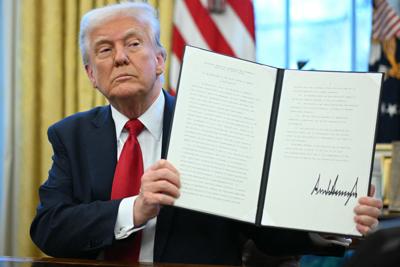
Although Trump told reporters on Monday night that he “settled” on a tariff plan, White House advisers were still presenting options to him on Tuesday, just hours ahead of his self-imposed deadline, CNN reported.
Among the plans being considered were customizing tariff rates for each US trading partner, levying tariffs on certain countries but not others or imposing a flat rate as high as 20% on all imports. One White House official told CNN that they didn’t believe Trump would arrive at a decision until the hours before Wednesday’s 4 pm ET announcement ceremony at the Rose Garden.
What Trump ultimately decides to announce on tariffs will be “effective immediately,” White House press secretary Karoline Leavitt said Tuesday. That is logistically dubious, but if that is the case, other nations would have little time to negotiate and could respond by immediately imposing countermeasures such as retaliatory tariffs.

Trump’s tariff ambitions explained
Trump views tariffs as a means of achieving four main goals: curbing the flow of fentanyl and illegal migration into the US, leveling the playing field with trade partners, raising government revenue and boosting domestic manufacturing.
He’s tied fentanyl and border-related issues to the 20% tariffs he’s already levied on Chinese imports and the 25% tariffs he’s threatened for Canada and Mexico.
In Trump’s view, the United States is being “ripped off” by countries with higher tariff rates on US-made products or countries with which the US runs a trade deficit – that is, nations from which America imports more than it exports. He said that’s the reasoning for pursuing reciprocal tariffs, which could also take into account what the Trump administration perceives as non-tariff trade barriers such as value added taxes (VATs) and digital services taxes (DSTs).
These tariffs could hit developing countries particularly hard, especially India, Brazil, Vietnam, and other Southeast Asian and African countries. These nations have some of the largest differences in tariff rates charged on US goods brought into their countries compared to what the US charges them, according to a recent Morgan Stanley analysis.
The investment bank’s economists note that Brazil, Indonesia, India, Thailand and Vietnam have the highest proportion of products with a greater than 5% tariff differential compared to the rate at which the US taxes their nations’ goods.
But many countries in the European Union also have VATs and DSTs, making one of America’s largest trading partners a likely target for higher tariffs.
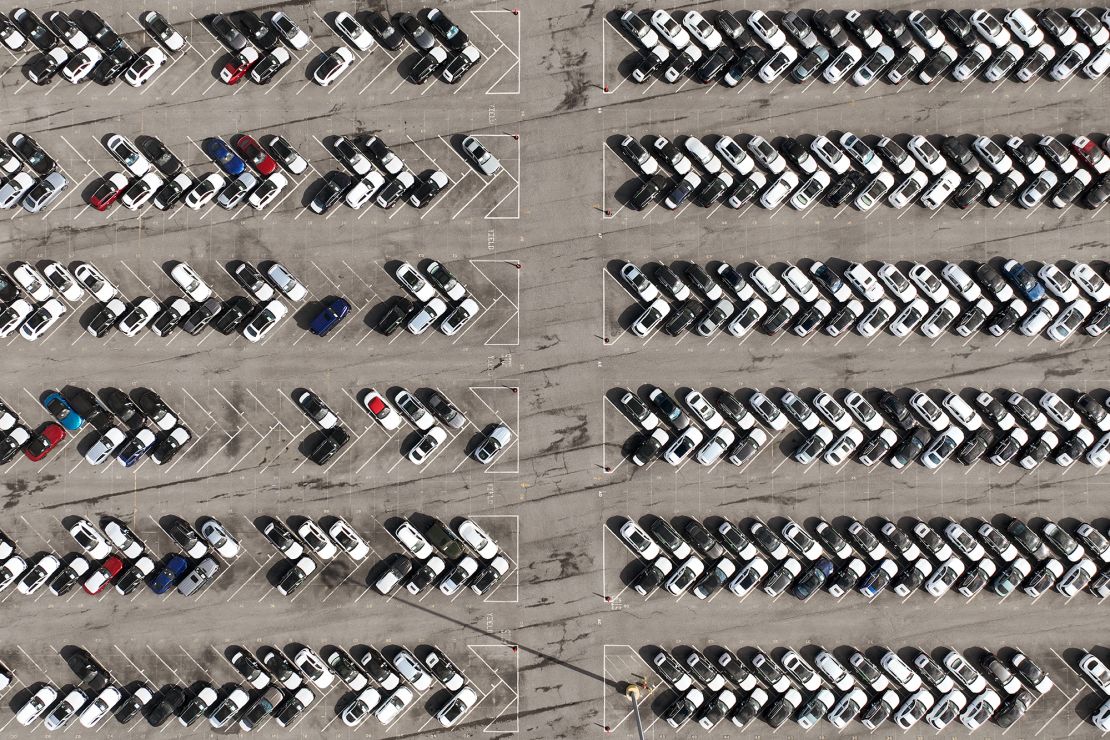
European Commission President Ursula von der Leyen sought to put Trump on notice Tuesday, saying the EU has “a strong plan” for striking back at the US. Various other countries, including Canada, Mexico, China, Japan and South Korea, have also been firming up retaliatory plans.
Chinese Foreign Minister Wang Yi said in comments published Tuesday by state broadcaster CCTV that Beijing would “counterattack” if the US continues to engage in “blackmail.”
“‘America First’ should not be American bullying, and it should not build its own interests on the basis of damaging the legitimate rights and interests of other countries,” he was quoted as telling RT, a state-owned Russian news group.

Israel took a different approach: It announced that it would cancel all of its tariffs on US goods on Tuesday, becoming the first country to do so since Trump’s reelection. The move was likely intended to put the country off the president’s radar, though Israel had only a limited amount of tariffs on US exports.
However, countries that follow in Israel’s footsteps may not be shielded entirely from tariffs.
Already, Trump has imposed 25% tariffs on all steel and aluminum imports and a 25% tariff on foreign cars that is set to go into effect on Thursday. A 25% tariff on foreign auto parts is set to go into effect by early May.
These tariffs will come on top of any country-specific tariffs — for example a 10% tariff on all imports from South Korea would mean cars, aluminum and steel from there would be subject to 35% total tariff rates.
On top of that, Trump may decide to tack on even more sector-wide tariffs Wednesday.
The president has touted these tariffs as a way to help the US government rely less on income taxes as a main form of revenue. He’s even gone as far to say that tariff revenue could replace income taxes entirely.
Recession fears growing
The tariffs in place and the uncertainty from the ones Trump has yet to announce have already dragged down the US economy at a precarious time, when a growing share of consumers are struggling financially.
An “everything, everywhere, all at once” tariff approach could not only significantly raise prices consumers pay and cause financial markets to plummet, but also tip the US economy toward a recession.
Economists have expressed concerns about the economic impacts of the tariffs. Goldman Sachs analysts in a note last week said economic growth driven by Trump’s fiscal policies would not be able to make up for the damage done by his massive tariff plan.
However, Trump and his advisers have repeatedly rejected the notion that Trump’s plan could backfire in any way. Leavitt said on Tuesday that Trump’s plans for tax cuts and deregulation will help lower inflation, perhaps counteracting the effect of tariffs.
“It is going to work,” Leavitt said.
Can Donald Trump serve a third term as US president?
WHAT DOES THE CONSTITUTION SAY?
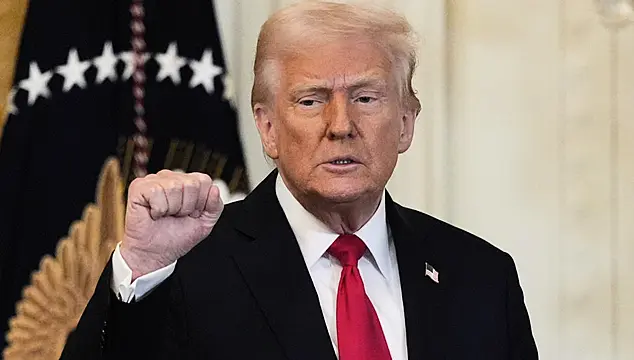
CAN TRUMP’S ALLIES CHANGE THE CONSTITUTION?

COULD TRUMP RUN AS VICE PRESIDENT?
Reporting by Jack Queen and Luc Cohen; Editing by Noeleen Walder, Howard Goller and Shri Navaratnam









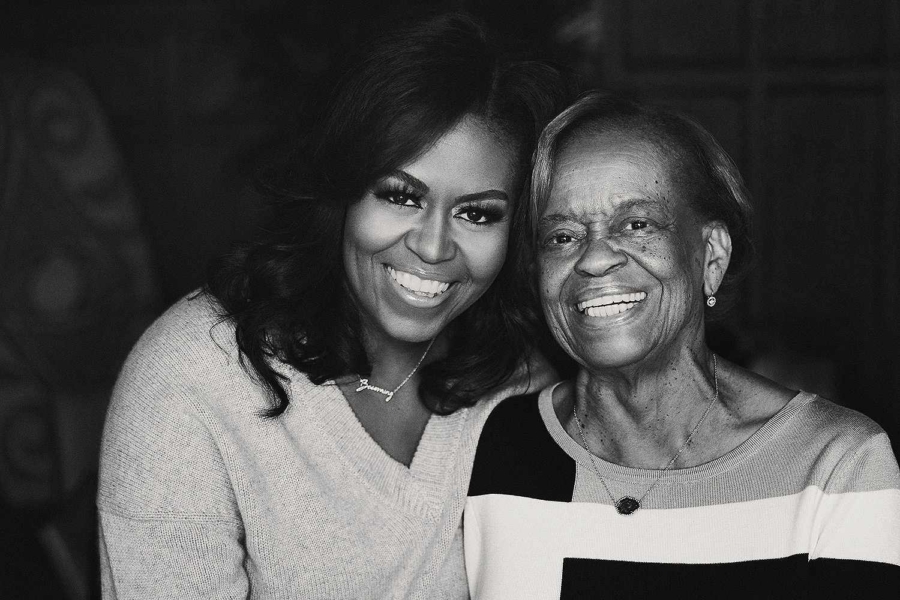



:max_bytes(150000):strip_icc():focal(691x489:693x491)/Blake-Lively-Justin-Baldoni-Lawsuit-122924-bbcf025ee6b047a4971c5b043976f435.jpg?w=1200&resize=1200,0&ssl=1)





















:max_bytes(150000):strip_icc():focal(750x347:752x349)/Nikki-Bahan-family-020326-4-edc823666828480cb5eb6b593cdc677a.jpg?w=1200&resize=1200,0&ssl=1)






:max_bytes(150000):strip_icc():focal(999x0:1001x2)/kelly-f8f4a408edbb4de585c0bd6fede3919f.jpg?w=1200&resize=1200,0&ssl=1)



:max_bytes(150000):strip_icc():focal(749x0:751x2)/catherine-ohara-home-alone-013125-efe8e1830a1849c582acd23b199ec16b.jpg?w=1200&resize=1200,0&ssl=1)
